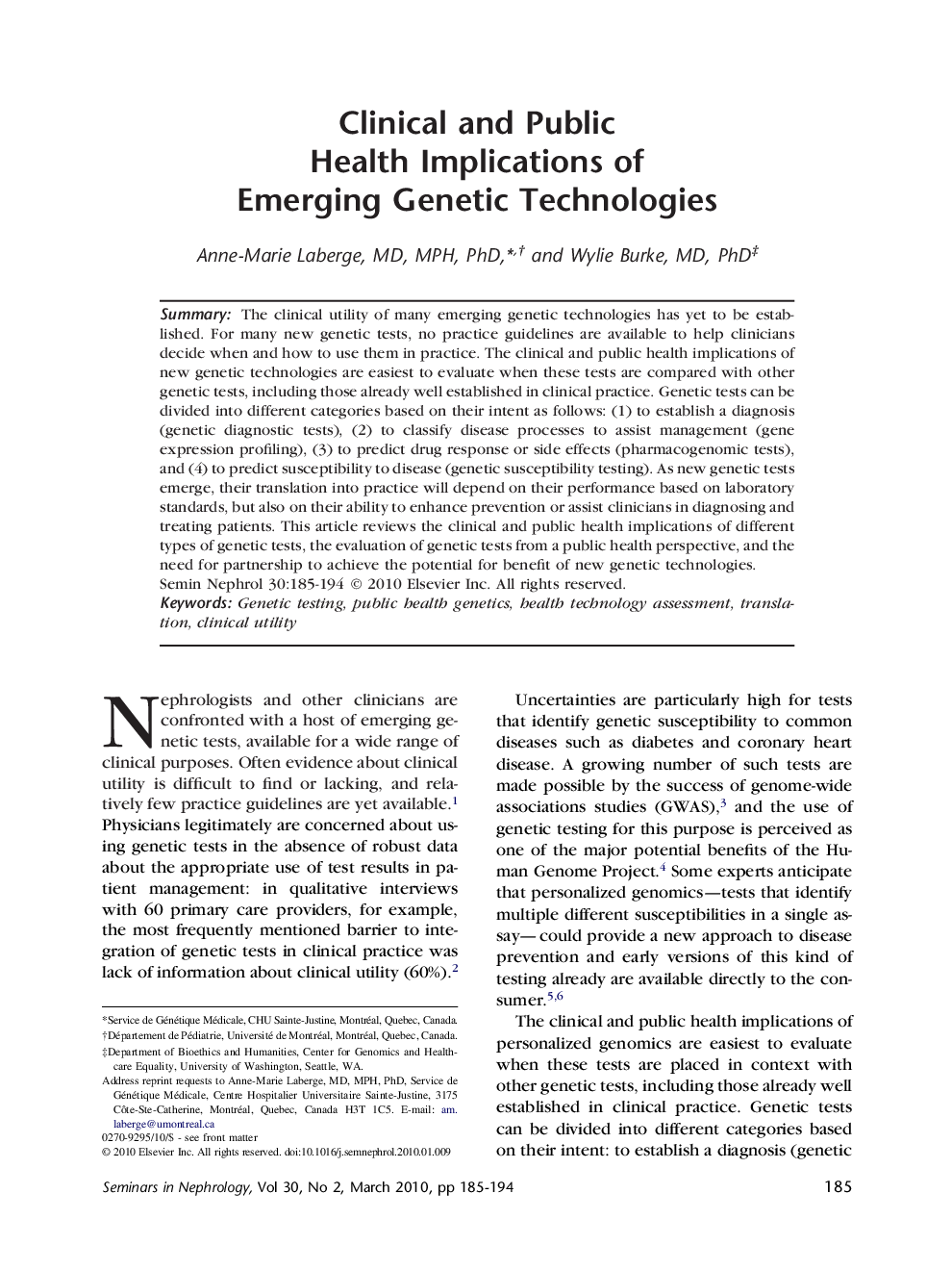| Article ID | Journal | Published Year | Pages | File Type |
|---|---|---|---|---|
| 3897048 | Seminars in Nephrology | 2010 | 10 Pages |
Abstract
The clinical utility of many emerging genetic technologies has yet to be established. For many new genetic tests, no practice guidelines are available to help clinicians decide when and how to use them in practice. The clinical and public health implications of new genetic technologies are easiest to evaluate when these tests are compared with other genetic tests, including those already well established in clinical practice. Genetic tests can be divided into different categories based on their intent as follows: (1) to establish a diagnosis (genetic diagnostic tests), (2) to classify disease processes to assist management (gene expression profiling), (3) to predict drug response or side effects (pharmacogenomic tests), and (4) to predict susceptibility to disease (genetic susceptibility testing). As new genetic tests emerge, their translation into practice will depend on their performance based on laboratory standards, but also on their ability to enhance prevention or assist clinicians in diagnosing and treating patients. This article reviews the clinical and public health implications of different types of genetic tests, the evaluation of genetic tests from a public health perspective, and the need for partnership to achieve the potential for benefit of new genetic technologies.
Related Topics
Health Sciences
Medicine and Dentistry
Nephrology
Authors
Anne-Marie MD, MPH, PhD, Wylie MD, PhD,
